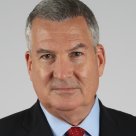For his first speech, in 2016, at the United Nations General Assembly, Justin Trudeau wanted to send a particular message to the international community.

For the week prior to his speech, he and his ministers had been telling anyone in New York City who would listen that “Canada was back.”
Never mind the fact that to most UN watchers, Canada had never left. During the Harper decade, Canada was an enthusiastic partner in the United Nations’ health, development and humanitarian and refugee work.
WATCH: Justin Trudeau to the UN General Assembly 2016

But Trudeau, not even in office a year then, was looking back past the Harper years to the so-called glory years of Liberal diplomacy when Lester Pearson came up with the idea of multilateral United Nations peacekeeping missions.
Trudeau, in fact, decided Canada would return to that role and committed funds and Canadian troops to a peacekeeping mission, the mission to be decided at a later date.
BUSINESS REPORT: Bill Morneau, Justin Trudeau left untouched by proposed new tax rules
And then he finished his 2016 speech like this:
“Canada is a modest country. We know we can’t solve these problems alone. We know we need to do this all together. We know it will be hard work. But we’re Canadian. And we’re here to help.”
It was a corny ending, sure, but the message was clear. Canada was an outward-looking country, keen to pitch in where it could to help solve the world’s problems. And under the leadership of Canada’s new government that’s just what it would do.
A year has passed since that speech and Trudeau’s sophomore effort at the United Nations General Assembly, early Thursday afternoon, was of a decidedly different tone than last year’s speech and, it must be said, out of step with many other leaders who have delivered speeches so far at ‘leaders week’ in Manhattan.
WATCH: Donald Trump’s UN speech highlights: ‘Rocket Man,’ North Korea and some countries ‘going to hell’
Where Trudeau, in 2016, looked out to the world, eager to help out where he could , his 2017 speech was a sombre inward-looking speech. It lasted 30 minutes but 20 minutes of it was a description of Canada’s shameful treatment of its Indigenous peoples.
That section included a description of how he had decided to break apart Canada’s federal department of Aboriginal and Northern Affairs into two new departments — as if the international community was terribly interested in the plumbing of Ottawa’s government machinery.
- Life in the forest: How Stanley Park’s longest resident survived a changing landscape
- ‘Love at first sight’: Snow leopard at Toronto Zoo pregnant for 1st time
- Buzz kill? Gen Z less interested in coffee than older Canadians, survey shows
- Carbon rebate labelling in bank deposits fuelling confusion, minister says
From the general assembly podium, Trudeau made lofty pronouncements about Canada’s wholesale endorsement of the United Nations Declaration of Indigenous Rights. In the press conference room later, Trudeau faced an awkward reminder from a reporter that his justice minister, the former B.C. chief Jody Wilson-Raybould, said that that UN declaration was “unworkable.”
After the section on his government’s new attitude about relations with Indigenous peoples, there was a short section about climate change, how Canada was committed to doing something about it and that, soon, Canada would put a price on carbon.
Environmental activists (and many New Democrats and Greens) have grown increasingly frustrated at the Trudeau government’s lethargy on the climate change file. Sure, there’s plenty of conferences, workshops, plenaries, first ministers’ meetings — but, for heaven’s sake, they cry, Canada’s greenhouse gas reduction framework is the one Stephen Harper put in place. What can be taking the Liberals so long to do something to change that?
Then Trudeau closed his speech Thursday with the oddest thing: Some pats on the back for bringing in a new child benefit and for signing the Canada-European free trade deal largely negotiated by the Harper government and then a pitch for the tax reform plan that’s become so controversial at home.
And that was that.
WATCH: Highlights from Trudeau’s UN speech
Nothing about North Korea, the Rohingya, or United Nations reform, to name three topics that figured into the speeches of dozens of leaders this week at the general assembly.
“We have to acknowledge what we’re doing at home,” Trudeau said afterward in response to a reporters question about this strange, inward-looking focus at the world’s pre-eminent forum for countries to speak to each other about global problems.
Trudeau will meet Ukraine President Petro Poroshenko Friday in Toronto but he couldn’t put a line in his UN speech denouncing the Russian invasion of Ukraine? If Canada can’t do that, who will? Given the huge Ukrainian diaspora in Canada, we are easily Ukraine’s best friend in the world.
Shockingly, there was not a peep from Trudeau about the promise he’d made a year earlier about the UN peacekeeping mission. Many of our allies are becoming increasingly frustrated with Canada’s foot-dragging on delivering on this promise. Even in a press conference after his speech, Trudeau had no answers about when a decision might be made.
As is usual with most speeches by most leaders at the general assembly, there were more empty seats than occupied ones in the cavernous hall but that should not be taken as a sign that these speeches are ignored. They are not.
Copies of these leaders’ speeches will be read and circulated by a country’s allies, a country’s donor partners and aid recipients — even by a country’s enemies. And that’s why most leaders use the platform of a United Nations General Assembly speech to signal to the world — and to their own diplomats — what their foreign policy and development and aid priorities will be for the upcoming year.
Trudeau’s failure to do that in Thursday’s speech is a misuse of the UN platform at worst and a missed opportunity at best.













Comments